Families & Stories
Families and Stories: Navigating early childhood delays and disabilities
In these short videos, parents of young children share what has worked for them, what they’ve learned, and what advice they would give to other families.
Are you worried about your young child’s development? Here’s everything you need to know, from getting an evaluation to starting preschool.

Maybe your child seems different from other kids their age. Maybe they can’t – or don’t – do things other kids their age do. Maybe you’ve already identified a disability and are figuring out how to navigate this.
You’re a parent. You’re worried. Whether this is your 1st child or your 5th, trust your gut.
We’ll address how you can find out if something is wrong, what it means if your child has a developmental delay or a disability, and how you can support them through the process. And then we’ll give you a timeline to walk you through the steps to get connected to school services at age 3-5.
Step-By-Step Guides
Whether you’ve just noticed your baby isn’t babbling yet or your child just graduated from Early Intervention, we have you covered. We’ll walk you through everything from what to do if you’re concerned about your child not meeting milestones to how to get them ready to start kindergarten.
We’ll let you know how to assess your child’s development, and describe the systems and health care providers that can support your child and your family.
Early Childhood Transition Timeline
If your child has a disability or delay, and they are between 2 and 3 (even if they are not in Early Intervention), it’s time to think about the transition to school or school-based services. Our step-by-step timeline will lay out what to do and when so you and your child will be ready.
Act as soon as you have a concern! You can connect to disability support services no matter how old your child is. Here’s how to get started.
Connect with the school district. The most important step at this age is to connect with your school district and start exploring special education services. Here’s what you need to know.
Get an evaluation from your school district to see if your child qualifies for special education services. Here’s what to expect.
Switch to school-based services. The public school system is required to support children with disabilities starting at age 3. Here’s how to make the switch.
Check progress. When your child is between 3 and 5, you should monitor their services and check progress against their IEP goals. Here’s what to watch for.
Start kindergarten! When your child turns 5, it’s time to start kindergarten. Here’s what to watch for.
Our blogs, videos, and podcasts offer more perspectives on the joys, challenges, and work of helping our young children move from learning to eat to learning to read and write. We talk about everything from helping your preschooler manage anxiety to navigating the Early Intervention age-out.
Wondering if your child is a late bloomer? Here’s how to tell if your child’s development is on track – and when to seek help.

Learning your child is behind on their milestones may seem like a lot to manage. In our new Early Childhood series, we’re here to answer a commonly asked question: What is an IFSP?
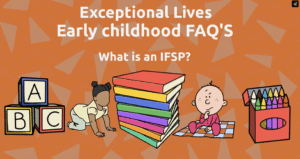
In this re-release listen to Christina and Dr. Nilong Vyas talk about the importance of sleep in early childhood.

Listen to Christina and Dr. Nilong Vyas talk about the importance of sleep in early childhood.
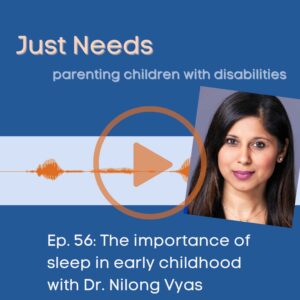
Speech Apraxia vs Autism: Are they related? If a child is speech delayed what can you do? Christina gets helpful information and insight from Kacy Woodson, a speech-language pathologist, in this week’s episode.
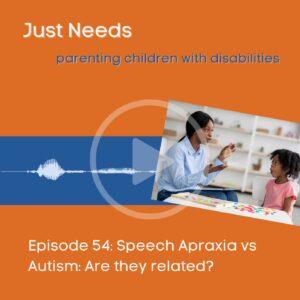
Preschool for children with developmental delays is important. It can help with their development, communication skills, and school-readiness.

What happens when you learn you’ll be parenting a child with a disability? Here’s how Leah went from grief to joy when her daughter arrived.
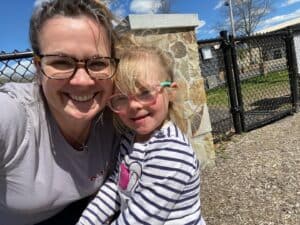
Many young children suffer from anxiety. In this short video, clinician John-Pierre LaFleur offers some simple tools for managing anxiety in young children.

Is your child with a disability getting ready for pre-k or Kindergarten? Here’s a timeline of exactly what you need to do at each point.

I learned early in my career as a child development therapist that the parent is the expert about their child. When a child and parent came into my office for visual spatial/cognitive therapy, or when I went to homes to provide DIR/Floortime, I thought about this parent-as-expert concept. I’ve always been drawn to supporting parents…
We All Have Good Intentions Do you keep books around that you will someday get to? I have a heap of books encouraging excellent intentions to learn, absorb, and generally ‘be better.’ I collect books that interest me as both a parent and professional. Books that will answer my parenting questions and solve all of…
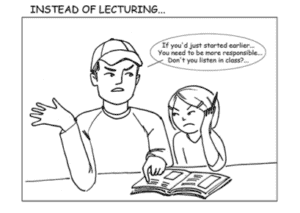
That’s what happened in my family. Our son was diagnosed with cerebral palsy when he was late to crawl and we noticed he had a clear preference for one side of his body. My husband asked me one night, “Does he always have his right hand fisted while he’s crawling?” I quickly said, “No” and…
Families & Stories
In these short videos, parents of young children share what has worked for them, what they’ve learned, and what advice they would give to other families.
Navigating fears about your child's development, whether they are hitting milestones, and how to help can be confusing. Here are answers to some of the questions families ask us the most.
Contact us